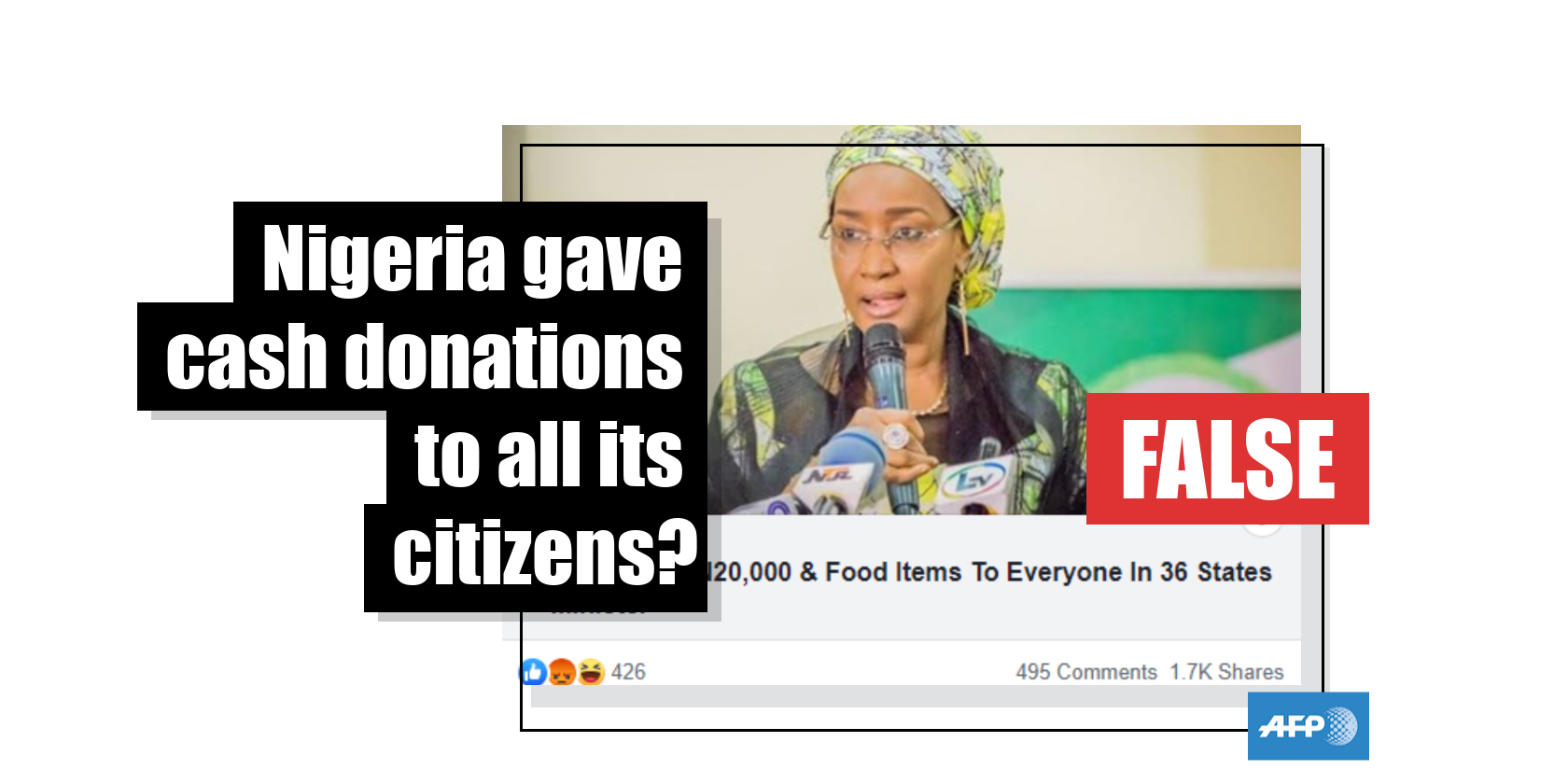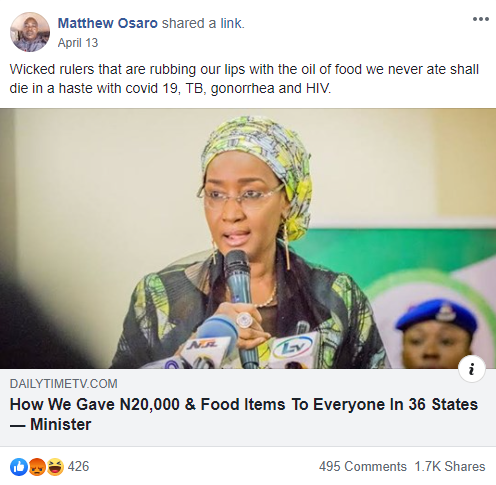
Article shared thousands of times uses false clickbait headline
- This article is more than five years old.
- Published on June 4, 2020 at 13:47
- 2 min read
- By AFP Nigeria, Mayowa TIJANI
One post, shared over a thousand times on Facebook and archived here, has been generating anger among some commenters, after the person who posted it suggested authorities were lying about giving financial help to all citizens.

The same article has been shared in other posts here, here and here.
Nigeria’s social investment programme
Before the outbreak of the novel coronavirus disease (COVID-19), the Nigerian government had instituted a social investment programme (SIP) in partnership with the World Bank. Vice President Yemi Osinbajo, who spearheaded the programme, said in October 2019 that “two million informal traders” had benefitted from the programme, stating that its “conditional cash transfer scheme” is “meant to cover over a million of the poorest in our communities”.
The programme provides low-interest loans to small businesses and smallholder farmers, offers jobs and training to unemployed people, and gives cash handouts to the poor and vulnerable. It also has a national school feeding programme, which provides a meal a day for pupils in government-run schools across Nigeria.
During Nigeria’s lockdown, to slow the spread of COVID-19 across certain states, President Muhammadu Buhari ordered distribution of food items and cash to the most vulnerable in society for two months. Rice, beans and other staples were part of the programme from authorities to feed some of the poor and attempt to cushion the blow as shops and businesses were forced to shut. However, these handouts were for the most vulnerable in the country -- not for everyone.
I have also directed that the current Social Register be expanded from 2.6 million households to 3.6 million households in the next two weeks.
— Muhammadu Buhari (@MBuhari) April 13, 2020
Clickbait
The misleading article with the headline “How We Gave N20,000 & Food Items To Everyone In 36 States — Minister” does not actually go on to say anything about handing out cash and food parcels to all Nigerians.
The body of the story talks about digitising the payment of cash transfers to the poor. A Google search of the first paragraph of the story shows it was copied word-for-word from this Vanguard newspaper report on digitising the SIP.
The article featured a photo Sadiya Umar-Farouq, the minister of humanitarian affairs, disaster management and social development. Contacted by AFP Fact Check, Halima Oyelade, special adviser to the minister, said that Umar-Farouq had made no such statement. She explained that the social investment programme is not for all Nigerians.
“The scheme has been in existence since 2016, and we have a national register, which has the names of the poorest of the poor in Nigeria, who benefit from the programme,” she said. "We got these names from working with the community."
Copyright © AFP 2017-2026. Any commercial use of this content requires a subscription. Click here to find out more.
Is there content that you would like AFP to fact-check? Get in touch.
Contact us
